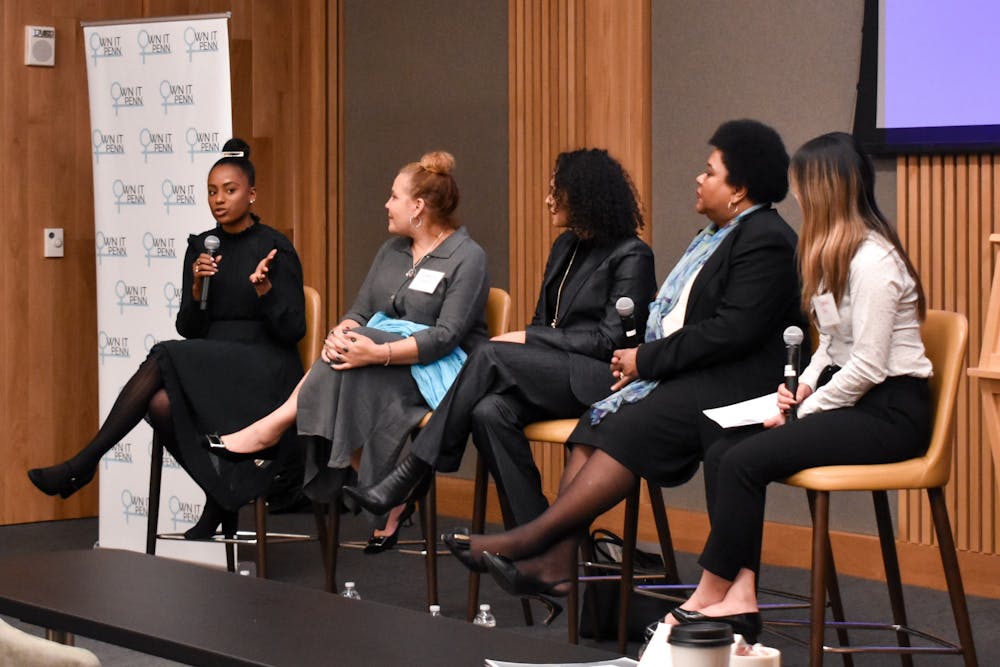
The annual OWN IT Conference brings women leaders to University City to share their career experiences with Penn students.
Credit: Samantha TurnerThe latest report from Wharton’s Project Sage shows increased financial returns from private equity and venture capital investments in funds that focus on advancing the lives of women.
Project Sage — a yearly report that studies private equity, venture capital, and private debt funds with a gender lens — is published by the Wharton Social Impact Initiative and consultancy Catalyst at Large. Project Sage 3.0, the third annual report published in July, is co-authored by Suzanne Biegel, senior advisor at Wharton Social Impact Initiative and founder of Catalyst at Large, and Sandi M. Hunt, who serves as managing director of Wharton Social Impact Initiative.
This year’s report analyzed data from 138 funds utilizing capital with a gender lens that raised a total capital of $4.8 billion — an increase in gender lens investing over the past three years. Project Sage's first report, published in 2017, studied 58 funds which raised a total capital of $1.1 billion.
The annual report aims to provide fund managers, financial advisors, investors, entrepreneurs and researchers with a better understanding of gender lens investing, along with insight on the trends across the field.
While the definition of gender lens investing remains broad, Biegel described it as “when you take an intentional approach to looking at gender as a factor of analysis and action in investment.” The term also refers to funds managed by female executives and those that advance products that improve the lives of women and female supply chain members.
Biegel said that Project Sage’s first report grew out of a need to have better data about gender lens investing.
“Using capital to get an impact return is on the rise, and we’ve seen significant movement around women’s empowerment,” Hunt told The Philadelphia Inquirer.
Biegel attributes the investment increases to women's ascendence as financial decision-makers.
“80% of purchasing decisions are made by women. 40% of the wealth is in the hands of women. There’s irrefutable talent, innovation, [and] leadership reasons [for] why this is on the rise,” Biegel said.
There is a substantial lack of access to capital for female entrepreneurs, female fund managers and companies focused on women and women of color’s markets, Biegel said. The International Finance Corporation reports that there is an estimated $260-$320 billion financing gap for women-owned small to medium-sized enterprises in emerging markets.
“We have a long way to go, and it’s all moving too slowly,” Biegel said.
The Daily Pennsylvanian is an independent, student-run newspaper. Please consider making a donation to support the coverage that shapes the University. Your generosity ensures a future of strong journalism at Penn.
Donate







